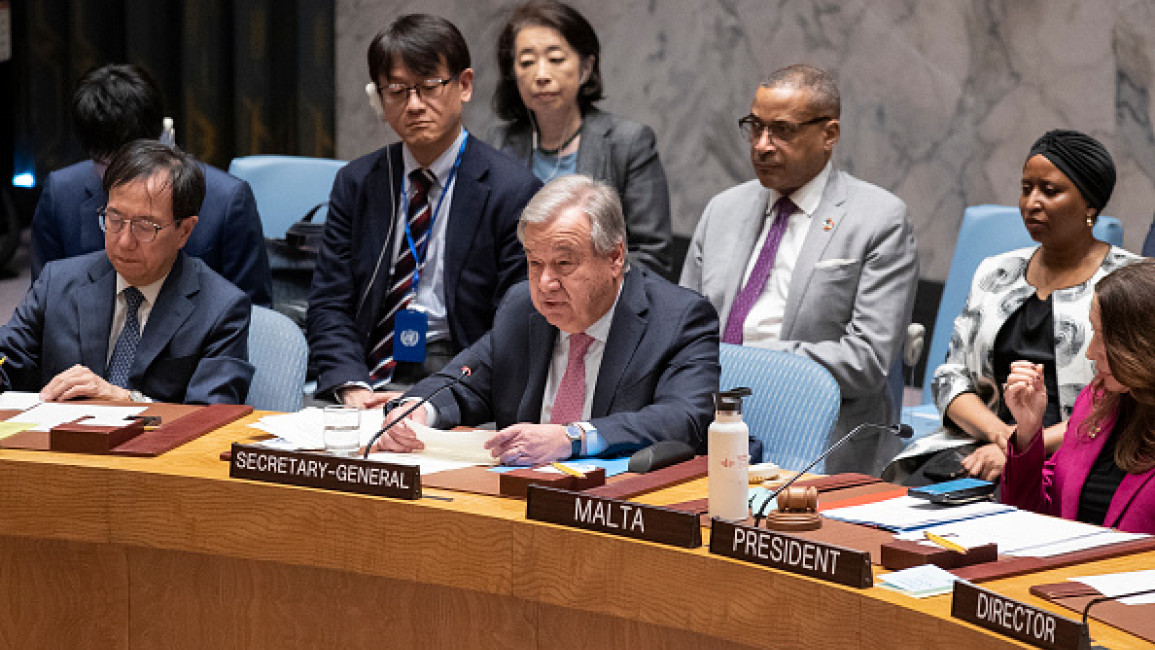Israel, Iran trade accusations at UN Security Council meeting
Israel and Iran accused one another on Sunday at the United Nations of being the main threat to peace in the Middle East, each calling on the Security Council to impose sanctions on their sworn enemy.
"The mask is off. Iran, the number one global sponsor of terror, has exposed its true face as the destabilizer of the region and the world," Israel's UN Ambassador Gilad Erdan told an emergency meeting of the Security Council convened after Tehran's unprecedented retaliatory attack on Israel overnight.
Erdan asked the Security Council to designate the Revolutionary Guards, the Islamic Republic's ideological army, as a "terrorist organisation" and to "impose all possible sanctions on Iran before it's too late".
In particular, he referred to the "snapback" mechanism that allows members of the 2015 Iran nuclear deal - which the United States exited in 2018 - to reimpose international sanctions against Tehran.
"We have a collective responsibility as members of the Security Council to ensure that Iran complies with the council's resolutions and ceases its violations of the charter," said Deputy US Ambassador Robert Wood.
In the coming days, the United States will "explore additional measures to hold Iran accountable."
Late on Saturday, Iran launched a direct attack on its arch-foe Israel for the first time, firing more than 300 missiles and drones.
Iran's attack came in response to a deadly Israeli air strike on Tehran's consulate building in Syria's capital Damascus on 1 April.
That attack killed seven Iranian Revolutionary Guards, including two senior generals.
Addressing the emergency meeting, Iran's UN Ambassador Amir Saeid Iravani insisted the Islamic Republic was exercising its "inherent right to self-defence."
"The Security Council... failed in its duty to maintain international peace and security," Iravani said.
Therefore, Tehran "had no choice" but to respond, he said, adding that his country does "not seek escalation or war," but will respond to any "threat or aggression."
He also lashed out at Israel.
"It is time for the Security Council to shoulder its responsibility and address the real threat to international peace and security," Iravani said.
The body "must take urgent and punitive measures to compel this regime to stop a genocide against the people of Gaza."
The rising tensions come against the backdrop of Israel's six-month-old war on Gaza, which has killed over 33,700 people - mostly women and children.
Since the 1979 Iranian revolution, Israel has been considered a sworn enemy by the Islamic Republic.
Until now, Tehran had refrained from attacking Israel head-on, and the two countries have opted instead to confront each other through third parties.
On Sunday United Nations Secretary-General Antonio Guterres urged restraint, telling the emergency meeting that "neither the region nor the world can afford more war."
"Now is the time to defuse and de-escalate," he said.
Guterres also repeated his condemnation of Iran's strikes on Israel, and the attack on Iran's consulate in Damascus.
"It's time to step back from the brink," Guterres said.



